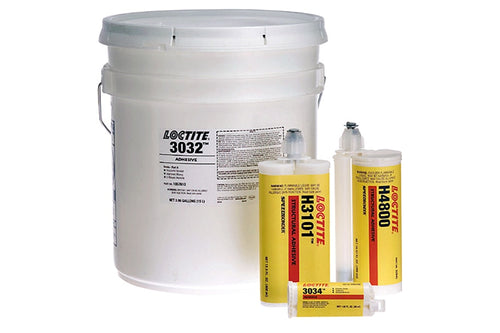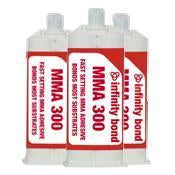The Best Polyethylene & Polypropylene Glues
From food containers to our vehicles, plastic products can be found almost everywhere you look. While plastics are a diverse material, some plastics like polypropylene (PP) and polyethylene (PE) can be difficult to bond. As a result, only certain adhesives can get the job done.
Comparing Polyethylene and Polypropylene Plastic
Polyethylene and polypropylene are both types of plastics that are used in a variety of our everyday items, but there are some important differences. Each has some unique properties that make it more suitable for particular applications. We are taking a closer look at polypropylene versus polyethylene.
Polypropylene Plastic
Polypropylene (PP) is a thermoplastic polymer and the second most widely produced commodity plastic. PP plastic is known for its durability. It has great resistance to chemicals, moisture, and high temperatures. Polypropylene plastics also tend to be more rigid than polyethylene plastics.
Polypropylene has a wide variety of applications but is commonly used in:
- Packaging
- Labeling
- Carpets
- Clothing
- Medical devices
- Car parts
Polyethylene Plastic
Polyethylene plastic, also known as PE, HDPE or LDPE, is the most widely produced plastic in the world. It is a lightweight thermoplastic that can be made in different grades for different applications. PE plastic is known for its high resistance to low temperatures as well as its flexibility. Polyethylene also tends to be cheaper than polypropylene.
Polyethylene also has several different applications including:
- Shopping bags
- Toys
- Boxes
- Film paper
- Helmets
Bonding Polypropylene and Polyethylene
Although the two plastics are used in a variety of everyday goods, it can be hard to find a glue for polyethylene and polypropylene that will work properly. Bonding PP and PE plastic tends to be difficult because both have low surface energy, and many adhesives cannot penetrate the surface enough to create a strong bond. Especially for load-bearing applications, you need a structural adhesive that you know will form a strong and lasting bond.
To combat the low surface energy of these materials, you should use the right surface preparation and plastic adhesives designed for the job. For example, certain surfaces can be pre-treated with techniques such as flame and plasma treatments. Additionally, there are specialty polyethylene and polypropylene glues that are created with these difficult substrates in mind.
The Best Glues for Polypropylene and Polyethylene
Because not every adhesive is designed for bonding polypropylene and polyethylene, it is important to find a product that is. Here are a few of our recommendations for the best adhesives for polyethylene and polypropylene bonding.
-
![Infinity Bond Super TAC 500 Plastic Bonding Glue Stick]()
SuperTAC 500 plastic glue
This hot melt is a great high-performance adhesive for a wide range of plastics including PE and PP. They come in 1/2" sticks and can be used with a standard temperature glue gun without the need for additional pre-treatment. This specialty polyethylene and polypropylene glue has a high resistance to extreme temperatures and is great for manufacturing settings such as with automotive and textile applications.
-
![MMA 500 Ultimate Difficult Plastic Bonding MMA Adhesive 50ml Cartridge]()
Infinity Bond MMA 500 glue for plastic
Another great polypropylene or polyethylene adhesive is the MMA 500. This product is specifically designed to work on low surface energy plastics like polyethylene and polypropylene and is especially effective for strong bonds. A permanent solution, the two-part adhesive requires a cartridge glue gun and static mixer nozzle for proper dispensing. The best part is that this adhesive is a cost-effective solution.
-
![Loctite AA 3035 50 ml adhesive cartridge]()
Loctite AA 3035 acrylic glue
Similar to the Infinity Bond product mentioned above, this Loctite acrylic adhesive is a PE and PP glue that does not require additional surface preparation before application. It is pale yellow in color and comes in a 1-to-1 mix ratio. It cures at room temperature and has a short work life of around 7 minutes. It also has the added benefit of being low odor and non-flammable.
See Infinity Bond MMA 500 in ActionWhile these are great adhesives for many applications involving polyethylene and polypropylene gluing, they may not be the best choice for your particular application. Fortunately, we have experienced lab technicians who can conduct adhesive product testing on your substrates to help you find the best solution for your needs.
Get More Information
Whether you want to know more about a specific polypropylene adhesive or polyethylene adhesive or you want more general information about how you glue plastic together, we want to help.
Our adhesive experts have several years of experience in the industry and have bonded a variety of different substrates. Not only can they offer suggestions on specific products, but also, they can provide overall guidance. Contact us today to get in touch.
Related Products
Ask a Question
Have questions? Our team of adhesive experts can help. Submit your questions and we'll get you answers right away. We're here to help.










